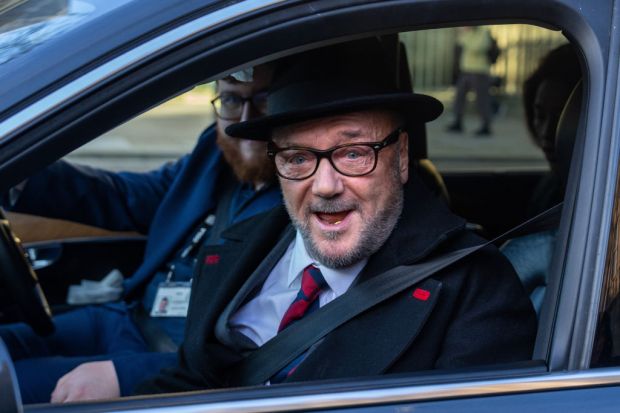One of the dominant political themes of the moment is that the big state, alongside either a high tax and spend economic model or massive borrowing, is here to stay. Those who advocate for even slightly more of a market economy and less state largesse apparently belong to a bygone age.
This narrative is being advanced by both left and right, Labour and the Conservatives. The Labour Party have obvious reasons to argue for a bigger state given this is one of the main reasons they exist, but the Conservative Party have begun to talk the economic language of Labour as well. This began under Theresa May’s leadership and continues through to the present. It initially allowed the Tories to steal Labour’s clothes, which worked electorally (eventually) but means that no one is now championing the value of free markets.
Those of us who believe in free markets know that they are a way to bring people out of poverty, not entrench it. Too much of the conversation on the economy at the moment seems to revolve around a poverty vs personal freedom dichotomy, as if this was a binary choice. As if in order to have a free, liberal market economy, you have to accept that most people will be very poor. This faulty reasoning has been absorbed and then regurgitated by a Conservative Party who should be refuting it.
Free marketeers should feel redeemed by history. Reforms to liberalise the Chinese economy that started in the late 1970s, moving it away from socialism (albeit not nearly enough and without corresponding political freedoms) led to more people being taken out of poverty than any other large-scale act in the history of the human race. We know that socialism isn’t the answer to Britain’s problems or indeed, any country’s dilemmas. Again, this has been learned from experience. During the 20th century, socialism was attempted in many countries, across different cultures – and it failed every time.
Markets aren’t perfect. That’s why I’m not arguing for libertarianism here. Regulation, when it is well-crafted, can enhance the fluidity of trade. State spending on infrastructure can help provide a skeleton upon which markets may flourish. A safety net for those who have fallen on hard times can drastically reduce the number of people living below the poverty line and allow the unemployed to rebound. But these are all additions to a thriving market economy that can afford them. Central planning doesn’t work anywhere near as well as a vibrant, free market.
In terms of getting out of the current crisis, the idea that the state must be the main driver of economic recovery is dangerous. For a start, the government cannot continue paying for everything forever – at some point, the market needs to take over again. The Government can and should help that along in any way that’s logical, but the market needs to be the engine of recovery, not the state. For a start, we can’t afford to have the Treasury continue to spend as much as they currently are for much longer. Something will have to give. If you put up taxes by a notable amount, you stifle a private sector that needs to be jump-started post-Covid. We have a binary choice: either we keep taxation relatively low to encourage economic growth or we try and squeeze business for all it’s worth. Borrowing is not the silver bullet either as this has a limit and adverse effects. In the midst of a national conversation on the size of the state that is slanted massively towards ‘bigger is necessary’, I have to wonder where the fiscal hawks have gone.
It would be perverse if socialism were to win an ideological victory in the shadow of a huge Conservative Party general election victory. Yet unless more of those who value free markets start making a strong case for them very soon, this will happen. Some free marketeers may retort that we are in a crisis at the moment; now is not the time to stand up for what markets can do. But very soon it could be too late. The argument needs to start being made now. The fightback against the assumption that more state spending is inevitable, with more intrusion into our lives by the state to go along with it, needs to begin immediately.
Got something to add? Join the discussion and comment below.
Get 10 issues for just $10
Subscribe to The Spectator Australia today for the next 10 magazine issues, plus full online access, for just $10.




















Comments
Don't miss out
Join the conversation with other Spectator Australia readers. Subscribe to leave a comment.
SUBSCRIBEAlready a subscriber? Log in